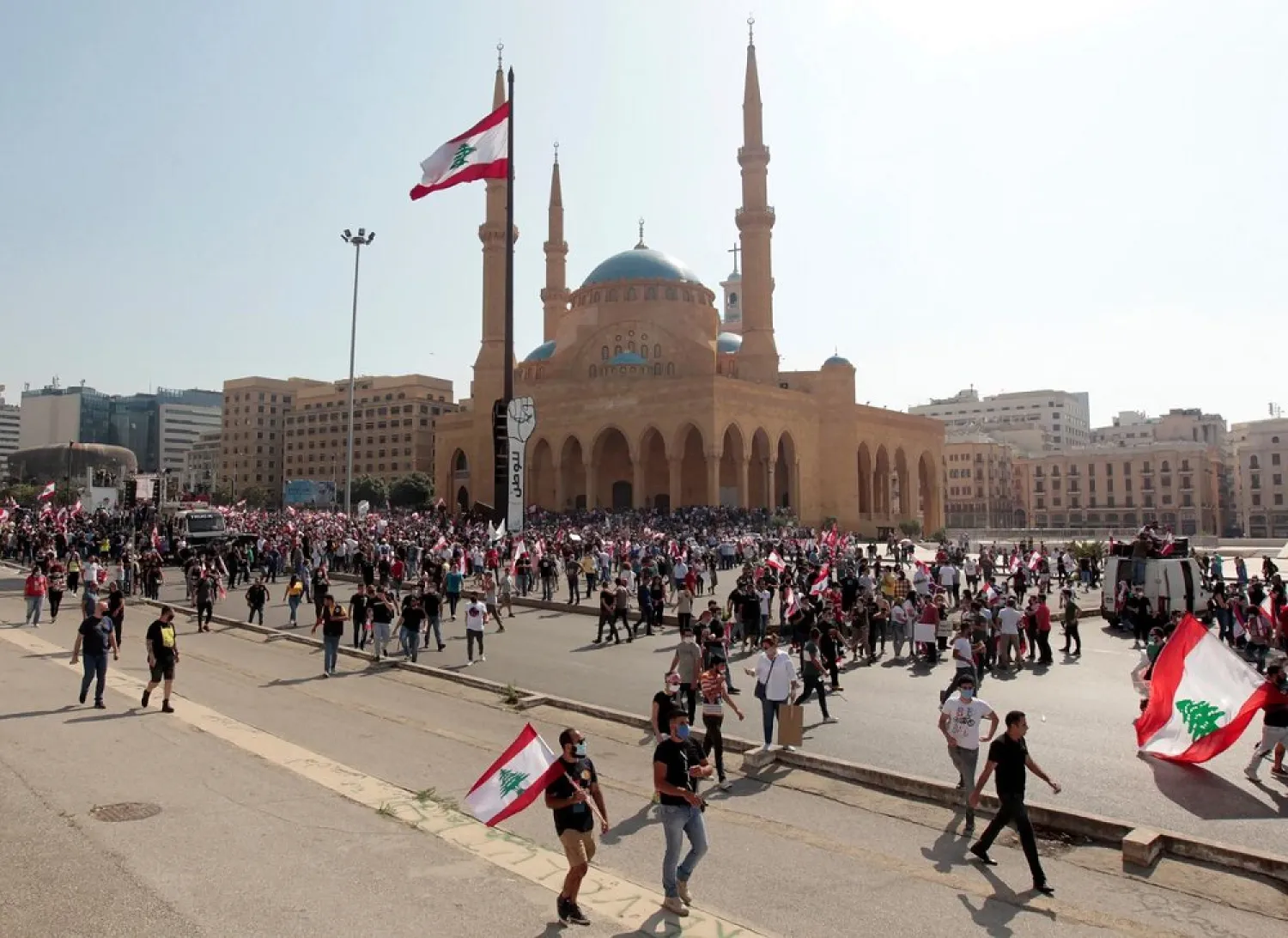Hundreds of Lebanese protesters took to the streets on Saturday to voice outrage over the government’s handling of a deep economic crisis, with security forces firing tear gas and rubber bullets to disperse rock-throwing demonstrators. Clashes soon erupted between supporters and opponents of the Hezbollah party.
Hundreds filled the streets in and around the protest hub of Martyrs Square in the center of Beirut, blaming a lack of government reforms for the economic crisis. Some waved banners demanding better living conditions and called for early parliamentary elections and tougher measures to fight corruption.
Debt-burdened Lebanon is grappling with its worst economic turmoil since the 1975-1990 civil war, now compounded by a lockdown to stem the novel coronavirus.
"We came on the streets to demand our rights, call for medical care, education, jobs and the basic rights that human beings need to stay alive," said 21-year-old student Christina.
But Saturday's protest turned violent as supporters of Hezbollah clashed with some demonstrators who were demanding that the Iran-backed group disarm.
Hezbollah is the only group to have kept its weapons since the end of the Lebanese civil war in 1990 and this has deeply divided Lebanon along political lines.
“No to Hezbollah, no to its weapons,” said a sign held up by Sana, a female protester from Nabatiyeh, a city in southern Lebanese, a Hezbollah stronghold.
“Weapons should be only in the hands of the army,” said the 57-year-old.
“As long as there are militias that are stronger than the state, then it (the government) will not be able to fight corruption,” said John Moukarzel, a real estate company owner.
Supporters and opponents of Hebzollah threw stones at each other prompting the army to intervene by forming a human chain to separate them, an AFP photographer said.
Security forces also fired tear gas near a street leading into the parliament building behind Martyrs Square, after some demonstrators pelted them with stones and ransacked shops in the area.
The Lebanese Red Cross said on Twitter 37 people were wounded in Saturday's violence, most of them treated at the scene.
The first big protests since the government rolled back coronavirus lockdown measures come as Beirut negotiates an International Monetary Fund package it hopes will secure billions of dollars in financing to prop up its collapsing economy.
Prime Minister Hassan Diab took office in January with the support of Hezbollah and its allies after the previous government was toppled by the protests that erupted last October.
Lebanon’s economic woes have reached new depths in recent months. The pound currency has lost more than half of its value on the parallel market, prices have soared, and companies dealing with the double blow of the coronavirus have axed jobs.
“You can sense that everyone is tired and the situation is very hard, especially the economy, so you can sense that people no longer want to be festive (in their protests). People are just angry,” said protester Marie-nour Hojaimy, a lawyer.
More than 35 percent of Lebanese are unemployed, while poverty has soared to engulf more than 45 percent of the population, according to official estimates.
Lebanon is also one of the world's most indebted countries with a debt equivalent to more than 170 percent of its GDP. The country defaulted on its debt for the first time in March.









